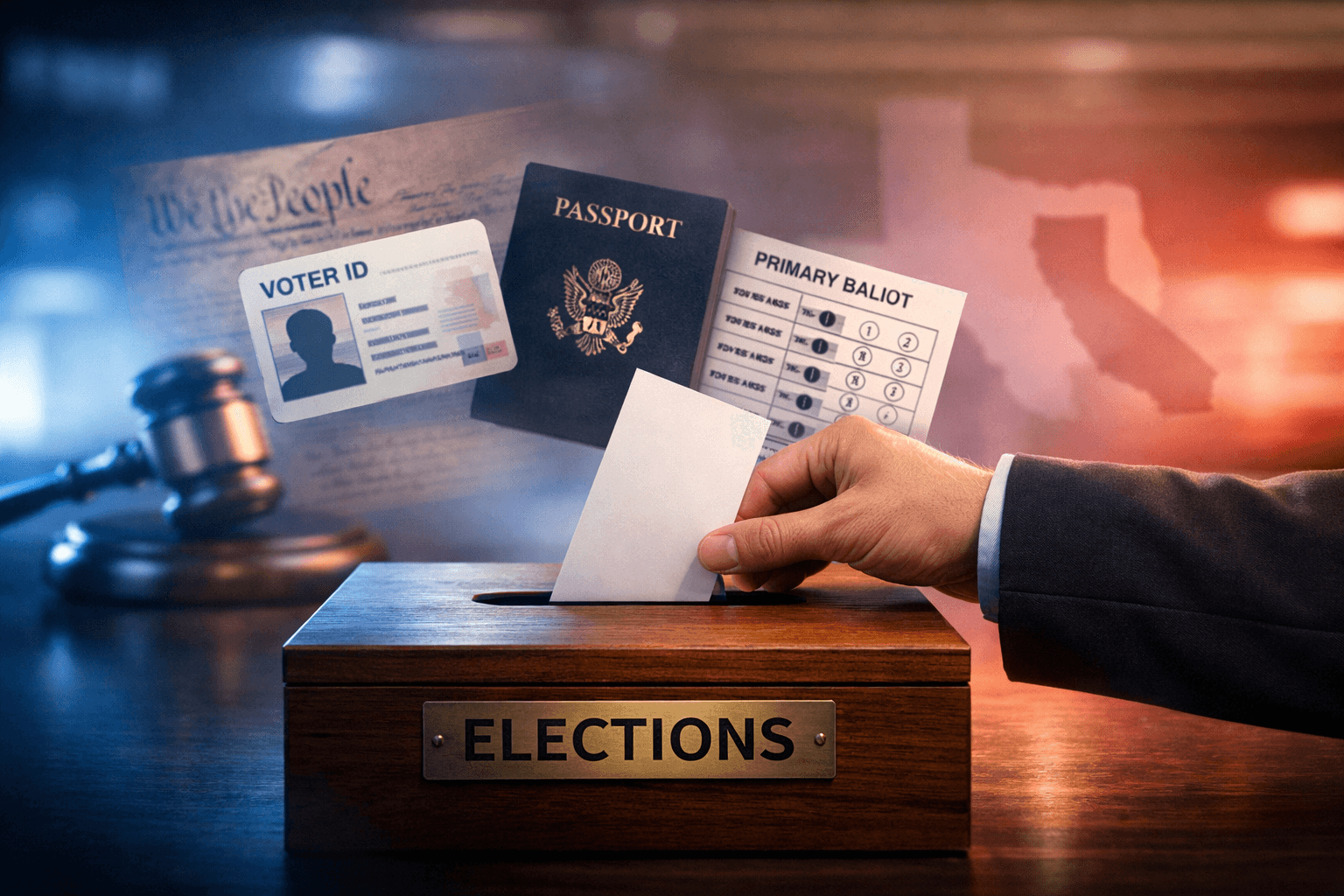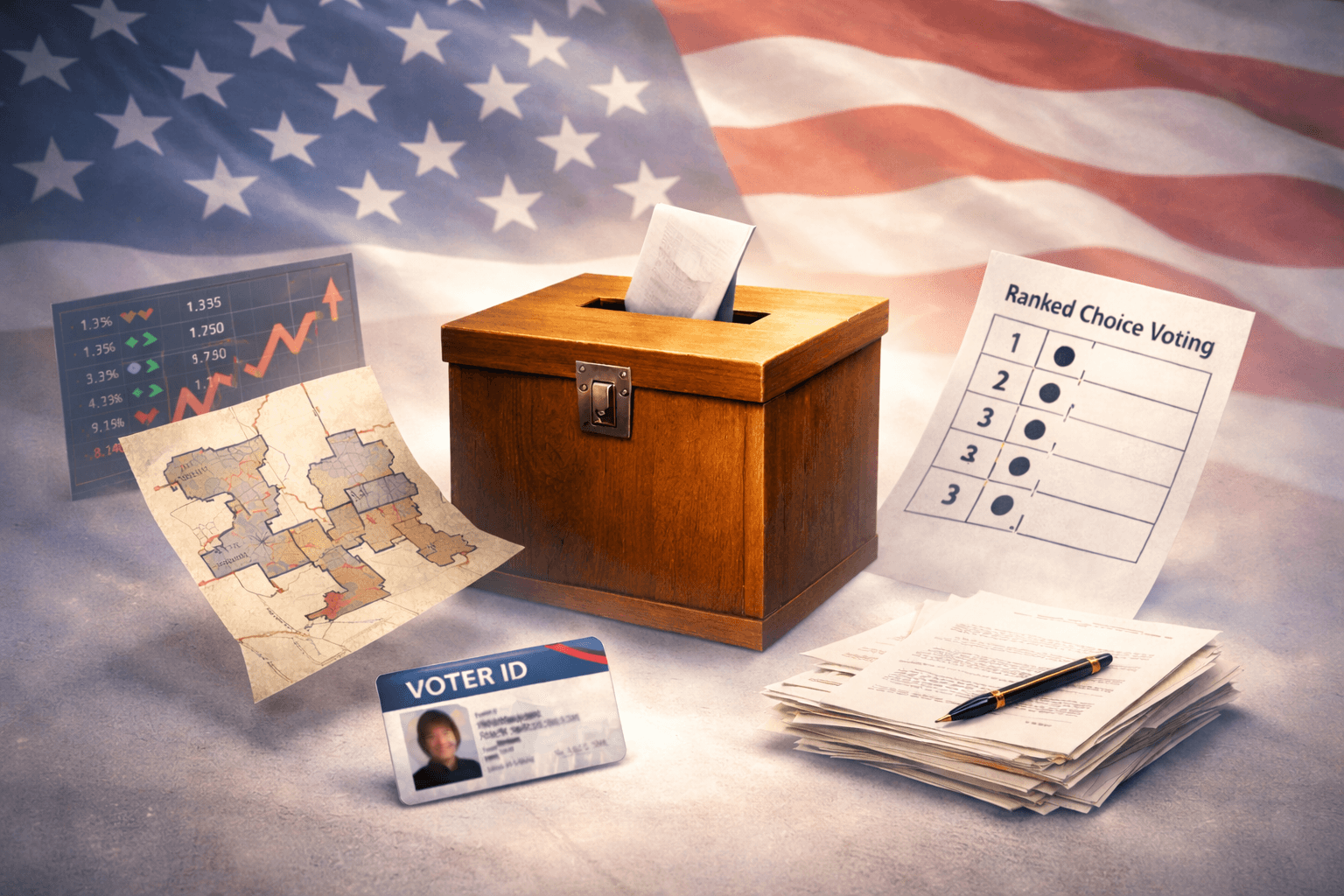Poll: La. Lawmakers Dismantle Nonpartisan Elections Supported by Two-Thirds of Voters

Photo Credit: Getty Images / Unsplash
It is not uncommon to meet someone who feels like their voice isn't heard by the people elected to represent them. In fact, it is a sentiment shared by most voters.
However, in Louisiana, voters witnessed their legislature not only ignore their opinions on something as important as voter rights -- but lawmakers also spit in their faces.
A new poll from JMC Analytics, a Louisiana-based data analysis group, found that 65% of voters support the nonpartisan "jungle primary" system used in all Louisiana state, legislative, and non-federal presidential elections.
In a "jungle primary," all voters and candidates participate on a single ballot when other states would conduct their general elections. If a candidate gets over 50% of the vote, they win outright.
If no candidate gets a majority, a runoff election is held a month later.
The "jungle primary" defies the traditional rules of a primary election -- particularly partisan primaries. First, the system does not pick nominees; it elects candidates, regardless of party.
Second, it doesn't discriminate against voters based on party ID or lack thereof. Third, there is no guarantee of a follow-up election if a candidate garners over 50% of the vote.
Voters are satisfied with this system because it treats them equally at the ballot box. It doesn't divide voters into separate classes nor give certain groups of voters an advantage or privilege that is denied other groups of voters.
However, the primary system Louisiana Gov. Jeff Landry called on state legislators to move to in a special legislative session is designed to do everything voters don't want elections to do.
Landry wanted closed partisan primaries for all elections in the state, which would make elections about nominating party candidates, rather than electing candidates -- moving away from a taxpayer-funded process that serves a public purpose to one that serves a private purpose.
Only party members can participate under closed primary rules, which would shut out over 800,000 state voters and condition their right to equal and meaningful participation in elections on joining a private political corporation.
By restricting voter access and taking away a right to equal treatment under the law, moving to a closed primary would by its very definition disenfranchise a third of the state's electorate.
Ultimately, party leaders have more control over electoral outcomes in low-turnout closed partisan primaries -- making elections less about the interests of voters, and more about the self-serving interests of the parties themselves.
The Louisiana Legislature did not give Landry everything he wanted. However, they voted to switch to closed partisan primaries for congressional and US Senate races, State Supreme Court and School Board elections, and elections for the state's Public Service Commission.
Not only does this disenfranchise a substantial segment of the voting population in important elections, but it will also result in confusion among independent voters because now they will have equal rights in some elections, but not others.
Lawmakers may come to regret their decision to put politics before voters. The JMC Analytics poll found that a majority of survey takers (54%) said they would be less likely to vote for a candidate who supports changing the primary system.
 Shawn Griffiths
Shawn Griffiths






